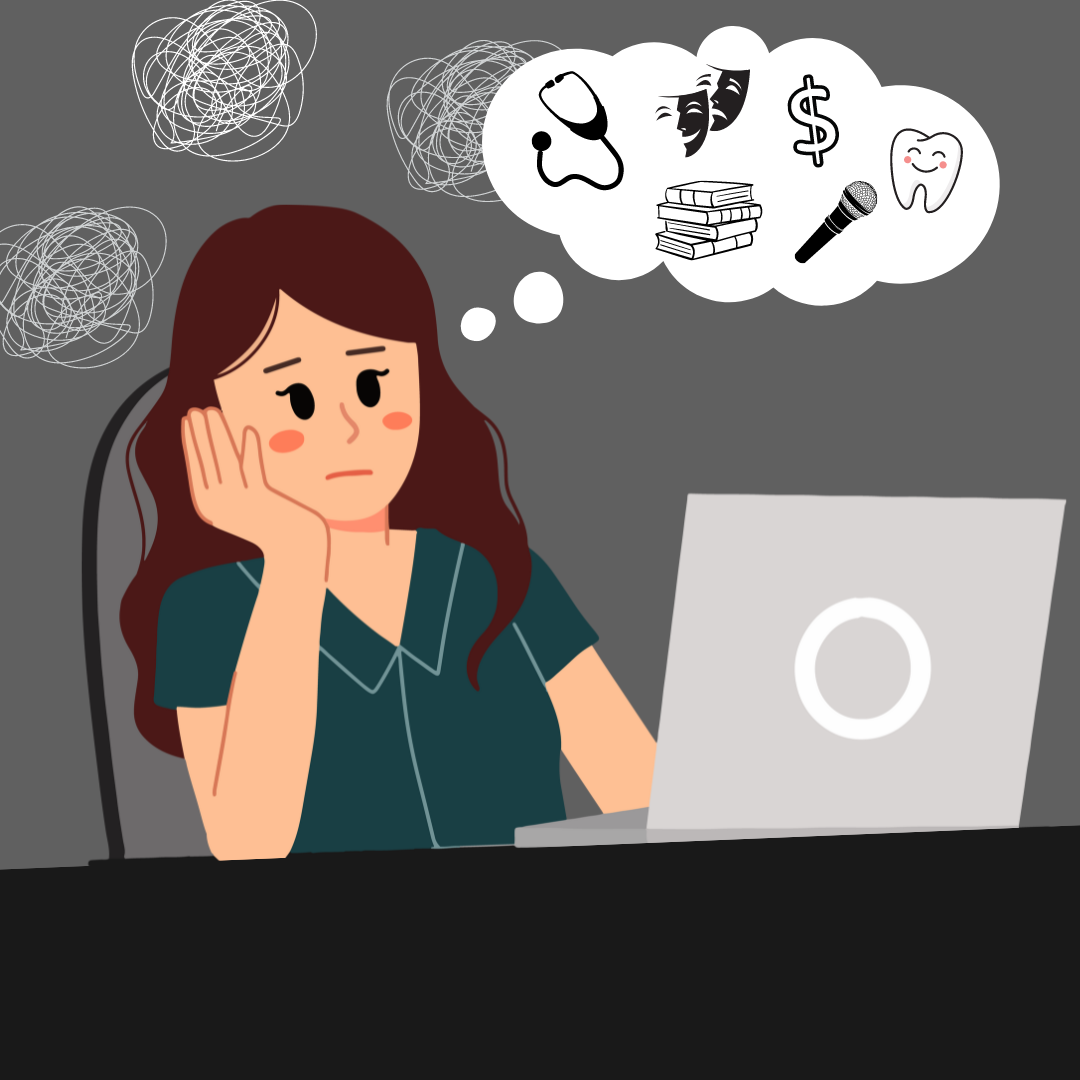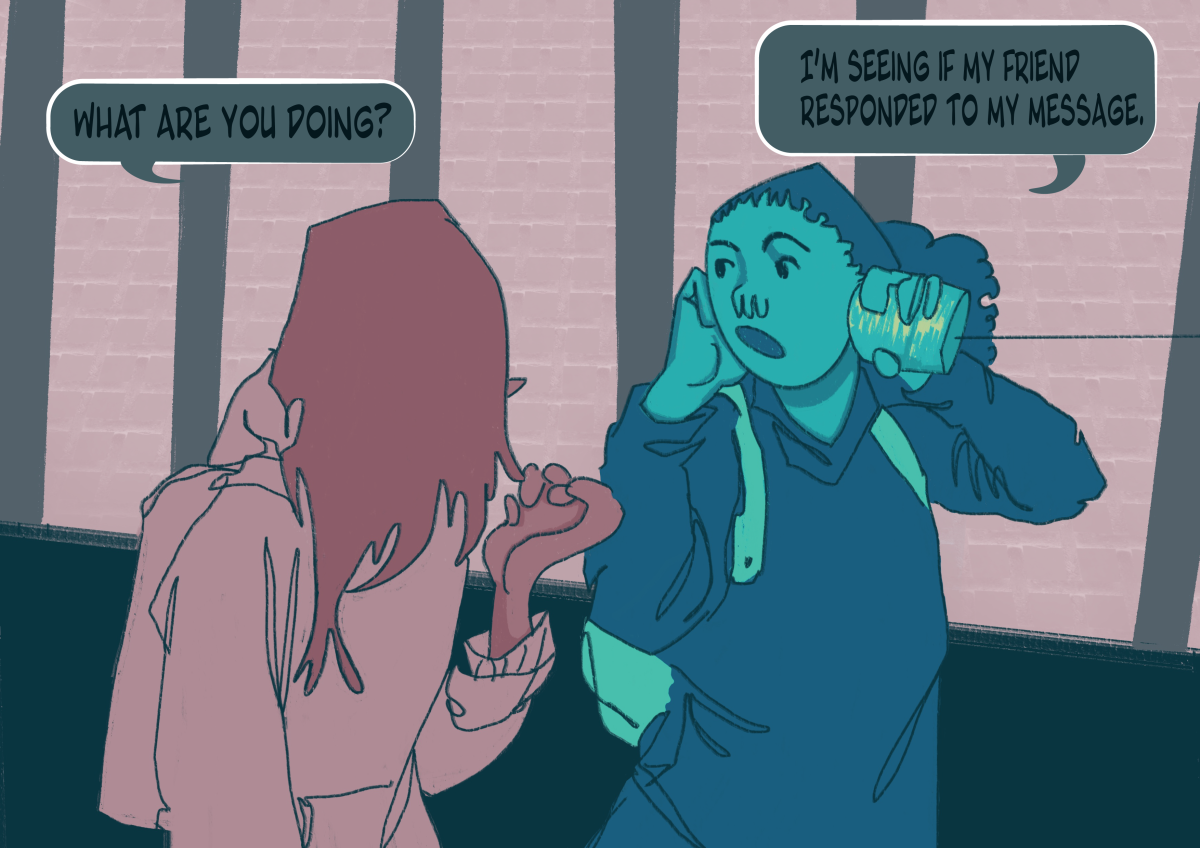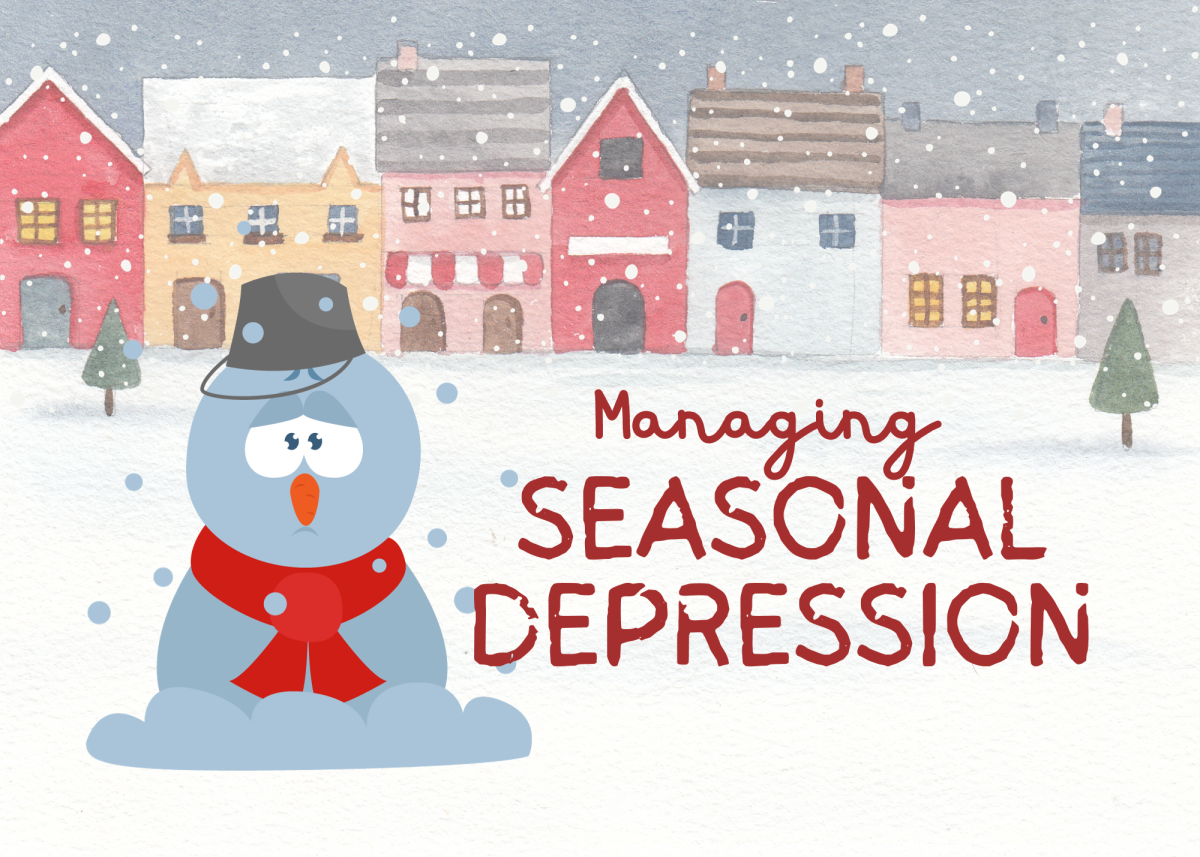
Going through the winter season can be demanding enough with school (including finals), sports, and family issues, but the added anxiety and pressure that can be associated with the holidays and winter in general, can contribute to poor mental health and can weigh teenagers/students down even more than normal. This can even up causing anxiety and/or depression. Licensed, independent mental health practitioner, Melissa Ellison, offers advice on how to get through the holiday season while experiencing these feelings:
Number One: Get a good amount of sleep.
In the colder months, sleep is crucial. Work and school schedules become more time-consuming for some, causing energy levels to decrease. Stress can take over, and it’s easier to get tired. According to the American Psychological Association, “Ninety percent of teens with low reported stress levels during the past school year say they get enough sleep, compared to less than half (48 percent) of teens with high reported stress levels during the past school year.”
Number Two: Try to eat a balanced diet.
Amidst the winter season, eating a balanced diet could be extremely beneficial for both your mood and health. Instead of sticking to junk food try to find a balance between as many food groups as possible. “Try to eat a balanced diet to help your energy level,” Ellison said. “Planning snacks and meals ahead of time could help reduce fast food consumption.” As stated by Sutter Health, “Sugar and processed foods can lead to inflammation throughout the body and brain, which may contribute to mood disorders, including anxiety and depression. When we’re feeling stressed or depressed, it’s often processed foods we reach for in search of a quick pick-me-up.”
Number Three: Stay as active as you can whether inside or outside.
Exposure to sunlight and being outside can help boost your mood and serotonin levels. “Try to engage in activities outdoors or near a window if it’s too cold outside,” Ellison said. “Exposure to daylight can help improve your mood even if the sun is not out.” Busying yourself with activity can distract you from your thoughts and give you new things to work on.
Number Four: Take breaks from social media and electronics.
In an article about the effects social media can have on your mental health, APA (American Psychological Association) Chief Science Officer, Mitch Prinstein, explained the negative effects of social media use. “Social media also heightens the risk for negative peer influence among adolescents, as well as for addictive social media use and stress, he added, citing research showing that many young people use social media more than they intend to and that they have difficulty stopping its use,” Prinstein said. Sometimes it can be difficult to get off your phone, but there are many other activities to try that will be beneficial. Doing little tasks, listening to music, reading, or being active, could distract from electronics and the stress that comes with them.
Number Five: Set small goals for yourself.
Setting smaller goals allows people to want to accomplish bigger goals and get tasks done. While taking breaks is important, set priorities and get the things you are capable of doing, done. This helps navigate stress. “Set small goals in order to decrease overwhelming feelings; focusing on one thing at a time,” Ellison said.
Number Six: Focus on the small things in life.
Focusing on the small things in life can also distract from stress. Be as appreciative and grateful as you can during the holiday season. It can be difficult to appreciate what you have during the holiday season, but it’s important to remember what you do have. Find things that you enjoy and spend time focusing on those, that help you throughout the winter.
Number Seven: Journal thoughts or feelings.
Keeping a journal to jot down thoughts and feelings, can help you express emotions and navigate the season. In agreement with the University of Rochester Medical Center, “It’s simply writing down your thoughts and feelings to understand them more clearly. And if you struggle with stress, depression, or anxiety, keeping a journal can be a great idea. It can help you gain control of your emotions and improve your mental health.”
Number Eight: Talk to a professional or someone you trust.
Talking to someone trusted could also help you feel better during the season. Sometimes, it can be challenging to talk to someone, but there are many different options. You can find a therapist, doctor, counselor, family member, or friend to confide in.
Number Nine: Set comfortable boundaries with friends and family.
“Set boundaries with friends and family when needed [don’t be afraid to say no and set aside time for yourself],” Ellison said. It’s essential to set aside time for yourself because you are important. It’s okay to take breaks from social gatherings and find something else to do. Your friends and family will understand if you need time to recharge your social battery.
Number Ten: Keep a routine.
“Having a routine keeps structure in your day, can also help balance your mood and sleep schedule,” Ellison said. “It’s best to get at least eight hours of sleep, and to go to bed and wake up at the same time each day (even if you don’t have school).” Keeping a routine can allow you to keep a balance in your life with school, work, sports and your home life.



















































